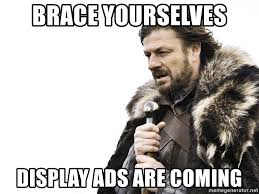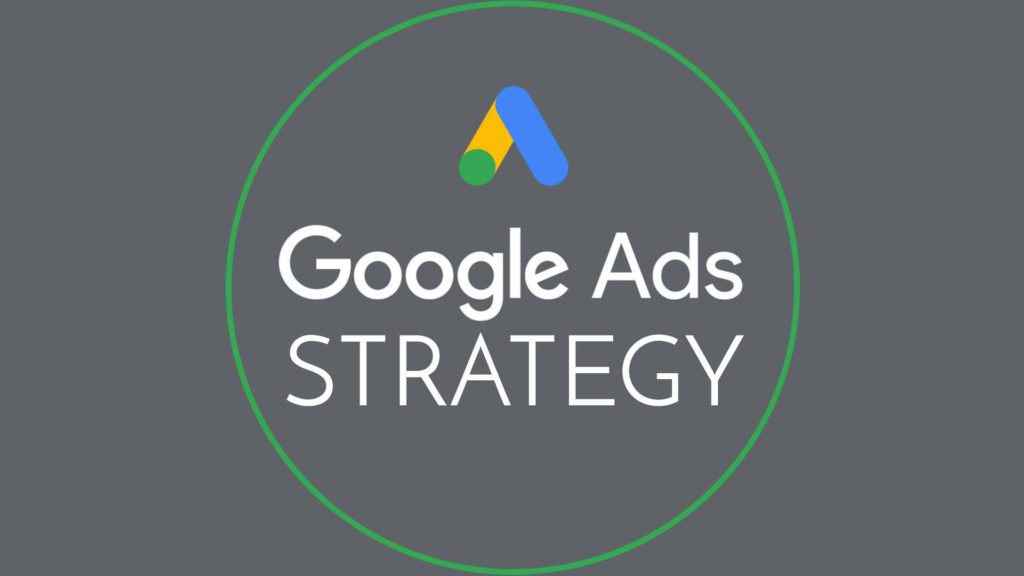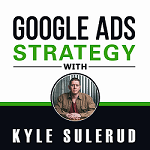Today’s question is one that I pulled out of my Facebook group.
I thought it was a question worth answering on the show because I haven’t really talked about this much.
The question comes from Kevin. And he asks:
“Are display ads cheaper than search ads?”
The simple answer to this is, yes.
They’re cheaper because they generally don’t cost as much per click than search ads.
They’re also cheaper because they’re generally not as valuable as search ads.

But I don’t want to stop with the simple answer.
Let me dig into this a little bit.
So really, when you’re talking about Display Ads versus Search Ads, you’re talking about two completely different things. This would be like asking “Are newspaper ads cheaper than phone book ads?”. Two completely different things. These are more different than simply comparing two sections of the Google Ads interface. These are just completely different ads, they have to be approached completely differently.
Display ads are similar to newspaper ads.
These are ads that are meant to disrupt what somebody is already doing, and compel them to do something else. Now, some companies just use display ads for brand awareness. That can actually work. I’m not gonna say that it’s completely worthless. If you have a local business and you’re trying to drive it awareness, then display ads can work.
Now, this wouldn’t be your only form of marketing. You need to have other forms of marketing that are more direct response-based, or you need to have a business that has a presence.
For example
If you have a local grocery store chain that has three stores in the city and has a presence, and it also does advertising like sending out ads in the mail, it’s putting ads in the newspaper, they’re running ads on TV, people are aware of this grocery store, then yeah, actually display ads are a really effective way to get in front of more people and to stay top of mind for more people, maybe to promote a sale that’s going on.
Maybe no one even clicks on these ads, but they’re getting the information in the display ad, that’s going to prompt them to actually go into the grocery store. Campaigns like that (ads like that) can work on a local level.
And of course, they can work on a national level when you’re looking at companies like Coke or McDonald’s.
I can go to virtually any store in town and buy a Coke. For Coke to put their information in front of me, that works because I might not even intend to go out and buy a Coke. But because something in that ad triggered me to want a Coke, next time that opportunity presents itself to me, I may very well buy a Coke. So display ads can work well in that instance.
If you’re able to target the right type of person, and you have an offer that is going to be appealing to them in the moment where they might opt-in for something, and then you start a longer dialogue with them over time, or maybe you actually can sell them something right away, display ads can certainly work for that. If it’s a product that you can interrupt what someone’s doing, you can target the right type of person, and then you can bring them to an offer that’s going to interest them, and that they will be motivated to take advantage of right away.
It’s hard to make that happen. You need the right type of product, the right type of offer, the right type of targeting, but display ads can work for that.
Now, on the other hand, search ads are largely intent-driven.
They are based on keywords that people are typing in to a search engine, and they are looking for an answer right away. They’re looking to buy a particular product. They’re looking for a particular type of business. So because of that, they work really well because you’re giving people what they want when they want it. And because they tend to work really well, more people are using them, more people are having success with them. There is a more limited inventory of ads. They’re only going to be four to maybe seven ads on a page for any given search, and that drives the price up.
So usually you’re going to be paying more for search ads. But usually, those search ads are going to be more profitable.
Now with search ads, the cost really is determined by the competition. If you are fighting for the same ad space with other companies, you’re going to be in a bidding war. And the price is going to be based on how valuable that traffic usually is. If you’re brand new to Google Ads, that value has usually been set by other advertisers. So just by looking at Google’s predictions for cost per click, you can get a pretty good idea of what you’re going to be paying. Other advertisers have already figured this out, based on how profitable those ads are to them.
With display ads, you’re not necessarily competing with the same type of business for that same traffic.
It’s not like a locksmith is going to be competing with other locksmiths on Google Search ad. So the price is dependent on how much locksmiths are willing to pay.
Display ads, it’s much more equal. The price is actually more determined by the types of websites that you are advertising on. If ads are running on more well-known websites, bigger brands, bigger news outlets, bigger blogs, that traffic tends to cost more. If the ads are running on random unknown websites, parked domains (things like that), that traffic is going to be a lot cheaper.
So if you’re thinking about running display ads, you really need to look at, if you have a product or an offer, that really has a chance of working on display.
You’re not going to use display, just because it’s cheaper than search.
That’s not a reason. That’s a really quick way to lose a lot of money. You’re going to approach display as a completely separate thing, and you’re going to look at whether you have a chance of succeeding with the Display Network.
You would then approach search as its own thing, and take a look at whether you have a chance of succeeding with search ads. But those need to be looked at differently. You really should not be comparing the price from one to the other.
So that’s my take on it, Kevin. Thanks for asking that question in the Facebook group*.

*Anyone who’s not a member of my group, you can go to Facebook and search Google Ads Strategy and request to join.
